[Native-Americana] [Quakers] Printed Bond, signed A prominent Philadelphia Quaker invests in maintaining peaceful coexistence with Pennsylvania's Indigenous peoples (Philadelphia), May 14, 1759. One sheet, 6 1/2 x 8 1/8 in. (165 x 206 mm). Partially-printed interest-bearing bond for £200 pounds (No. 13), registered to Richard Wistar, and issued and signed by the nine commissioners for Indian Affairs of the Province of Pennsylvania, including Joseph Richardson, Thomas Willing, James Child, Amos Swettell, William West John Reynell, Joseph Morris William Fisher and Edward Pennington; MS. on verso recording yearly interest amounts paid, signed by Wistar, as well as by his brother, Caspar, and his wife, Sarah; docketed on same. Creasing from original folds; lightly toned. This rare colonial Pennsylvania interest-bearing bond, issued in 1759, attests to the role of Quaker diplomacy in helping ameliorate relations between Pennsylvania's settler population and their indigenous neighbors during the Seven Years War (1756-63). Issued to Richard Wistar (1727-81), of the prominent Philadelphia Wistar family (son of Quaker glassmaker Caspar Wistar [1696-1752], and father of noted physician and anatomist, Caspar Wistar [1761-1818], the younger), he invested £200 in the newly established board of Indian Affairs, and received 6% interest per year, paid out annually. He and his family collected until April 1763, around the time the board was dissolved. The £200 was used by the board for Indian Affairs to regulate trade, maintain peaceful relations, and expand Christian proselytizing efforts with the Province's native peoples in the frontier region in the west and in the north. It was made up of prominent Philadelphia and Quaker merchants, and was established by an act passed the previous year, on April 8, 1758 (supplemented on April 17, 1859, for which this bond helped fund), entitled, “An Act for preventing Abuses in the Indian Trade for supplying the Indians, Friends and Allies of Great Britain, with Goods at more easy Rates and for securing and Strengthening the peace and Friendship lately concluded with the Indians Inhabiting the northern and Western Frontiers of this Province." The Indian Affairs commission sprang out of the political and social upheaval that occurred in 1750s Pennsylvania. Decades of territorial expansion by white settlers onto native land, often with the aid of the proprietary government led by the Penn family, and the subsequent cooperation of many of those native tribes with the French leading up to the Seven Years War, led to unprecedented violence in the frontier regions. Richard Wistar, a prominent, and philanthropically-minded Philadelphia-based Quaker merchant, was a founding member and trustee of an important Quaker peace delegation that sought to stop this turmoil through nonviolent means, the Friendly Association for Regaining and Preserving Peace with the Indians by Pacific Measures. It was formed with the purpose of directly negotiating with the region's native peoples, specifically the various Delaware tribes that made up a large portion of the province's native population. The Friendly Association was formally established on December 1, 1756, by Philadelphia merchant, Israel Pemberton, Jr., and 11 officers, including Wistar, John Reynell (treasurer), Joseph Richardson, and Joseph Morris (all three members of the Indian Affairs board, and signatories of this document), as well as, William Callender, Abel James, Jonathan Mifflin, James Pemberton, Jeremiah Warder, and Isaac Zane. Its members raised funds and provided gifts to native tribes, and organized peace negotiations between them and British colonial officials in Lancaster and Easton, Pennsylvania (where Wistar was frequently present as a delegate representing the Association, including the signing of the Treaty of Easton in 1758). The establishment of the Indian Affairs board was one facet in the culmination of years of political wrestling between t
[Native-Americana] [Quakers] Printed Bond, signed A prominent Philadelphia Quaker invests in maintaining peaceful coexistence with Pennsylvania's Indigenous peoples (Philadelphia), May 14, 1759. One sheet, 6 1/2 x 8 1/8 in. (165 x 206 mm). Partially-printed interest-bearing bond for £200 pounds (No. 13), registered to Richard Wistar, and issued and signed by the nine commissioners for Indian Affairs of the Province of Pennsylvania, including Joseph Richardson, Thomas Willing, James Child, Amos Swettell, William West John Reynell, Joseph Morris William Fisher and Edward Pennington; MS. on verso recording yearly interest amounts paid, signed by Wistar, as well as by his brother, Caspar, and his wife, Sarah; docketed on same. Creasing from original folds; lightly toned. This rare colonial Pennsylvania interest-bearing bond, issued in 1759, attests to the role of Quaker diplomacy in helping ameliorate relations between Pennsylvania's settler population and their indigenous neighbors during the Seven Years War (1756-63). Issued to Richard Wistar (1727-81), of the prominent Philadelphia Wistar family (son of Quaker glassmaker Caspar Wistar [1696-1752], and father of noted physician and anatomist, Caspar Wistar [1761-1818], the younger), he invested £200 in the newly established board of Indian Affairs, and received 6% interest per year, paid out annually. He and his family collected until April 1763, around the time the board was dissolved. The £200 was used by the board for Indian Affairs to regulate trade, maintain peaceful relations, and expand Christian proselytizing efforts with the Province's native peoples in the frontier region in the west and in the north. It was made up of prominent Philadelphia and Quaker merchants, and was established by an act passed the previous year, on April 8, 1758 (supplemented on April 17, 1859, for which this bond helped fund), entitled, “An Act for preventing Abuses in the Indian Trade for supplying the Indians, Friends and Allies of Great Britain, with Goods at more easy Rates and for securing and Strengthening the peace and Friendship lately concluded with the Indians Inhabiting the northern and Western Frontiers of this Province." The Indian Affairs commission sprang out of the political and social upheaval that occurred in 1750s Pennsylvania. Decades of territorial expansion by white settlers onto native land, often with the aid of the proprietary government led by the Penn family, and the subsequent cooperation of many of those native tribes with the French leading up to the Seven Years War, led to unprecedented violence in the frontier regions. Richard Wistar, a prominent, and philanthropically-minded Philadelphia-based Quaker merchant, was a founding member and trustee of an important Quaker peace delegation that sought to stop this turmoil through nonviolent means, the Friendly Association for Regaining and Preserving Peace with the Indians by Pacific Measures. It was formed with the purpose of directly negotiating with the region's native peoples, specifically the various Delaware tribes that made up a large portion of the province's native population. The Friendly Association was formally established on December 1, 1756, by Philadelphia merchant, Israel Pemberton, Jr., and 11 officers, including Wistar, John Reynell (treasurer), Joseph Richardson, and Joseph Morris (all three members of the Indian Affairs board, and signatories of this document), as well as, William Callender, Abel James, Jonathan Mifflin, James Pemberton, Jeremiah Warder, and Isaac Zane. Its members raised funds and provided gifts to native tribes, and organized peace negotiations between them and British colonial officials in Lancaster and Easton, Pennsylvania (where Wistar was frequently present as a delegate representing the Association, including the signing of the Treaty of Easton in 1758). The establishment of the Indian Affairs board was one facet in the culmination of years of political wrestling between t
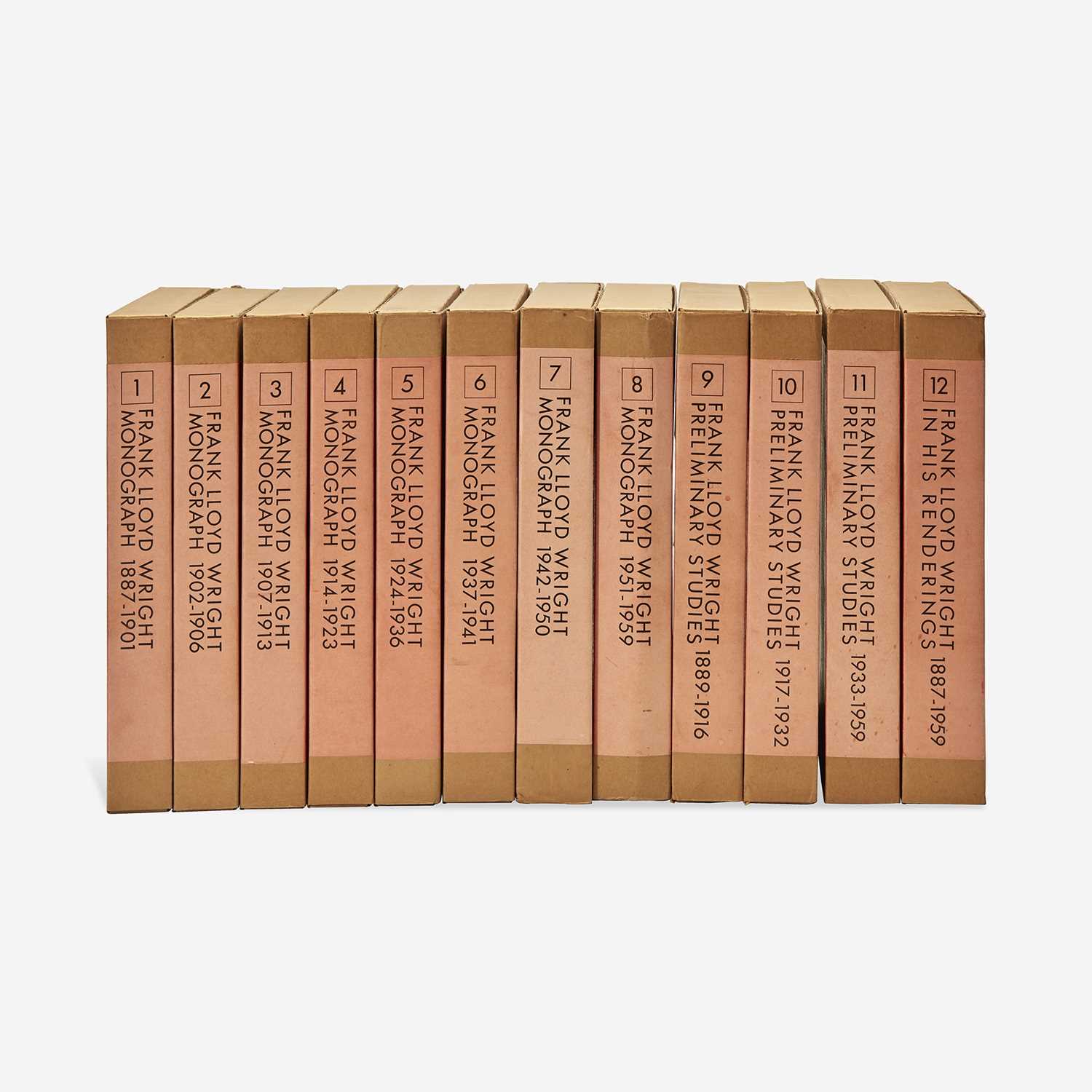

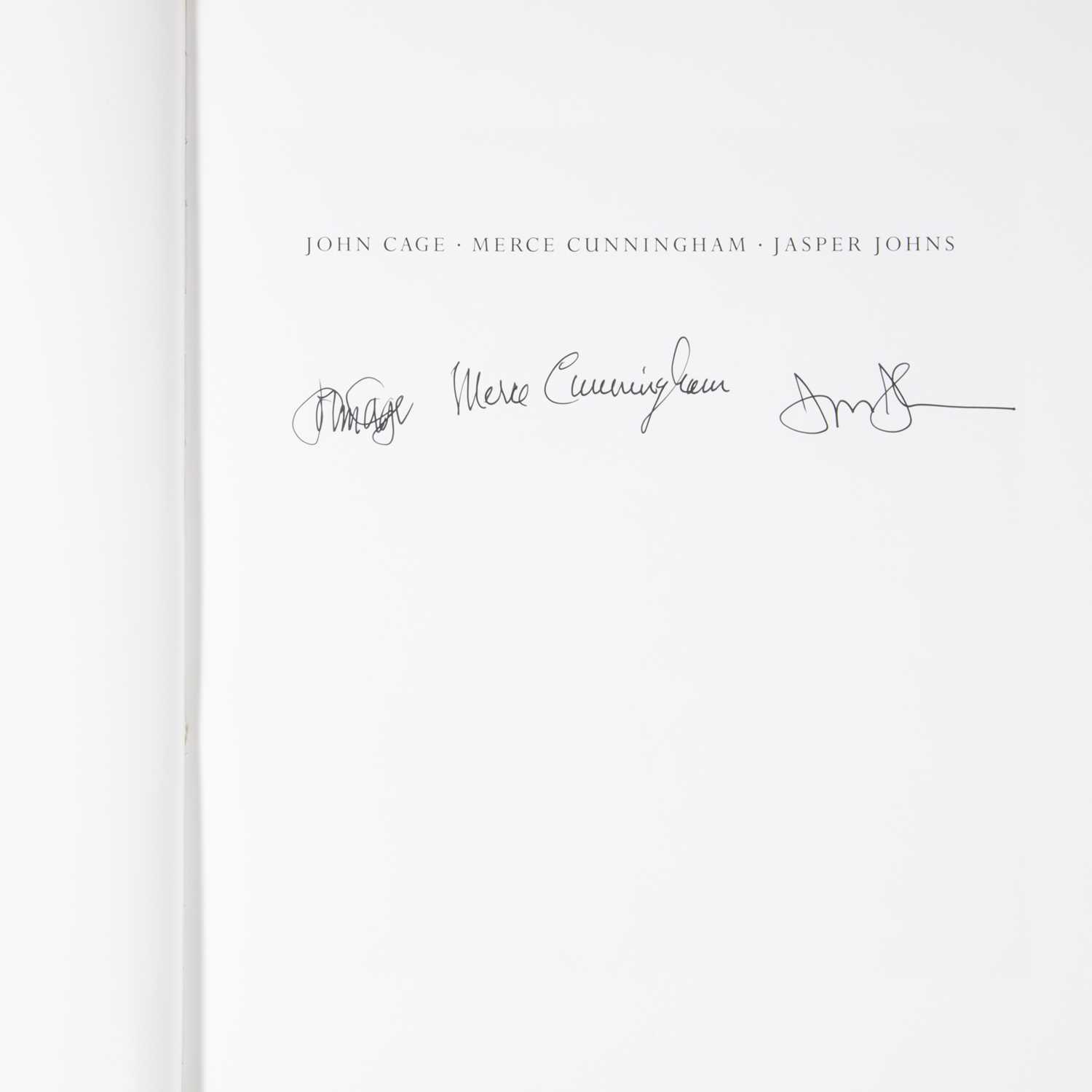
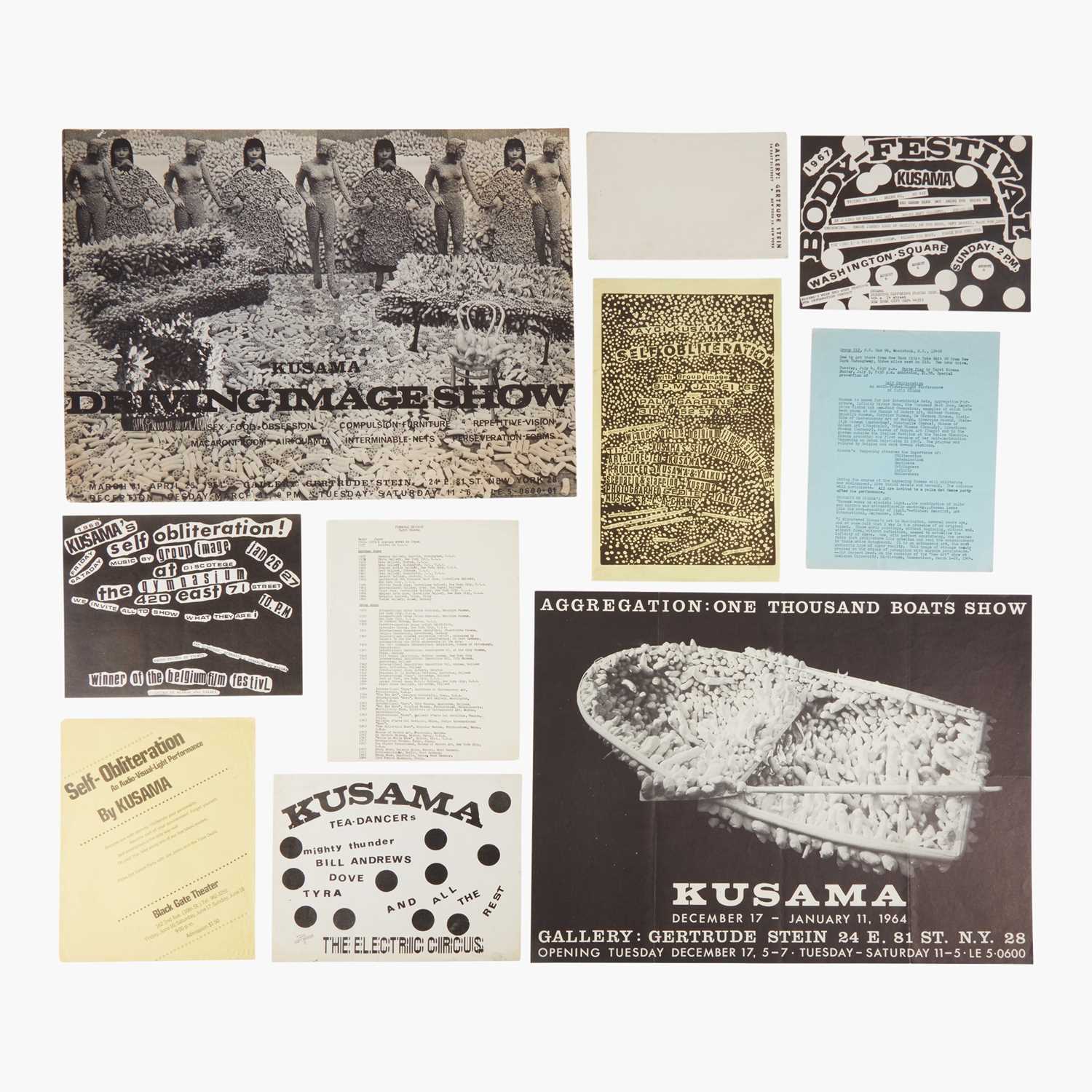
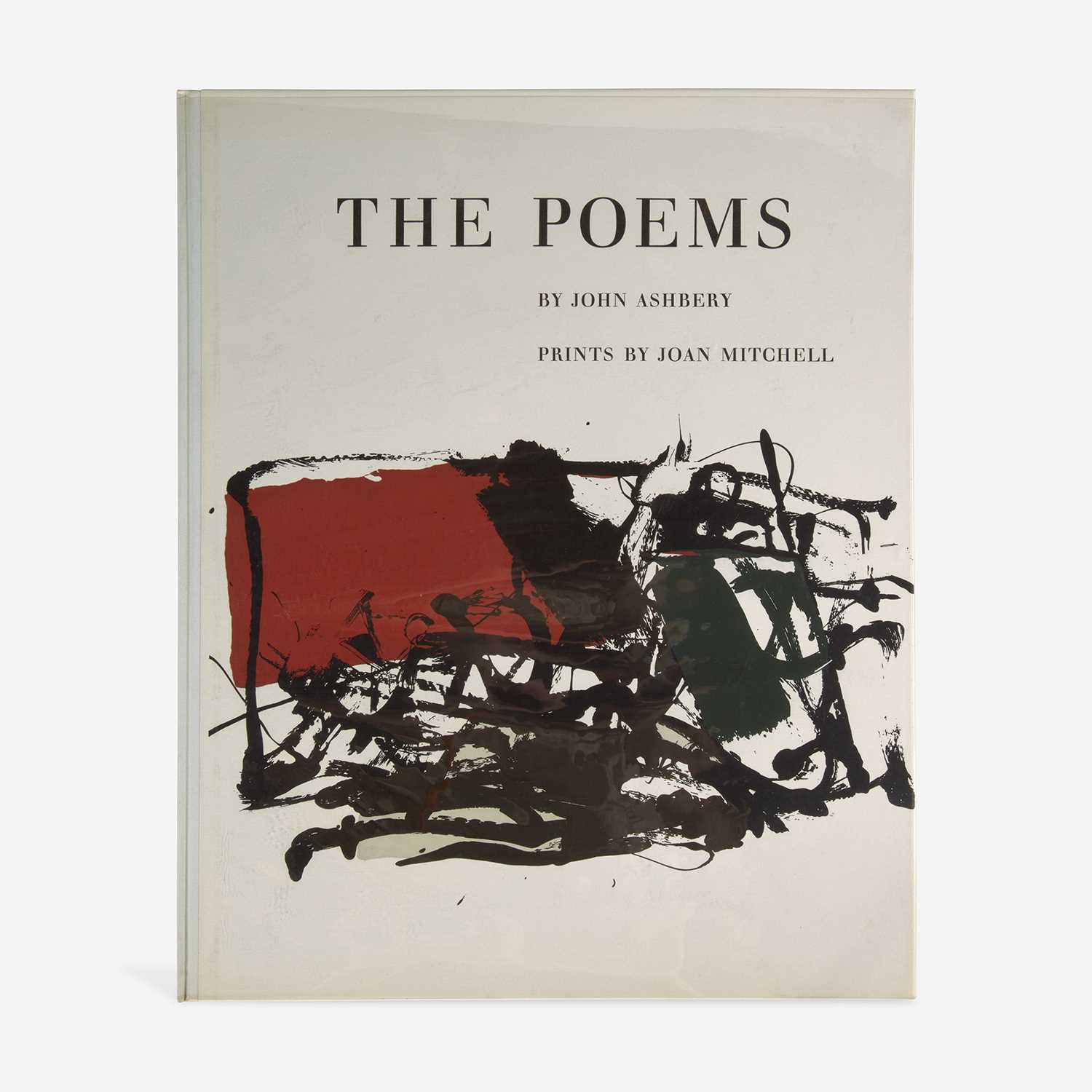

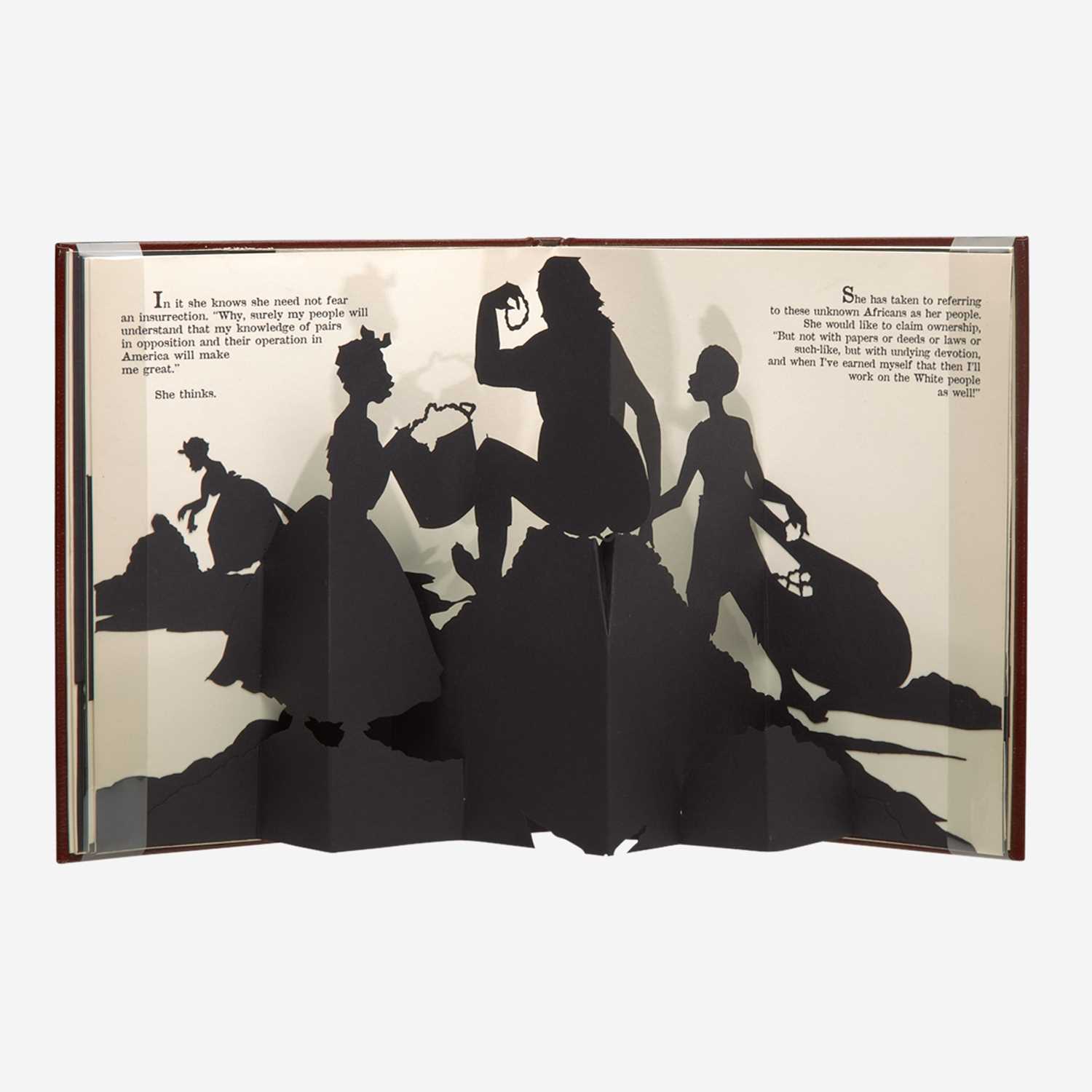


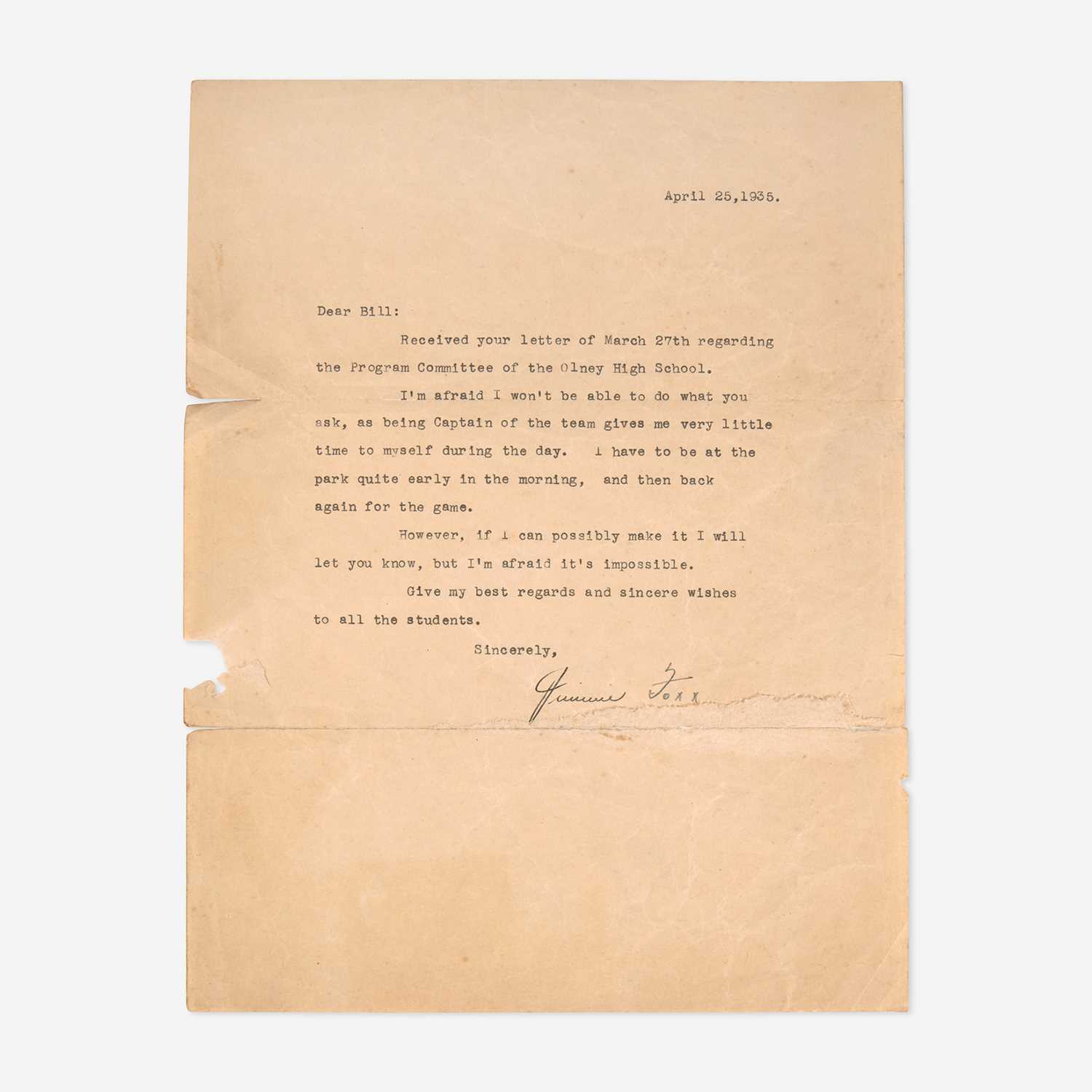
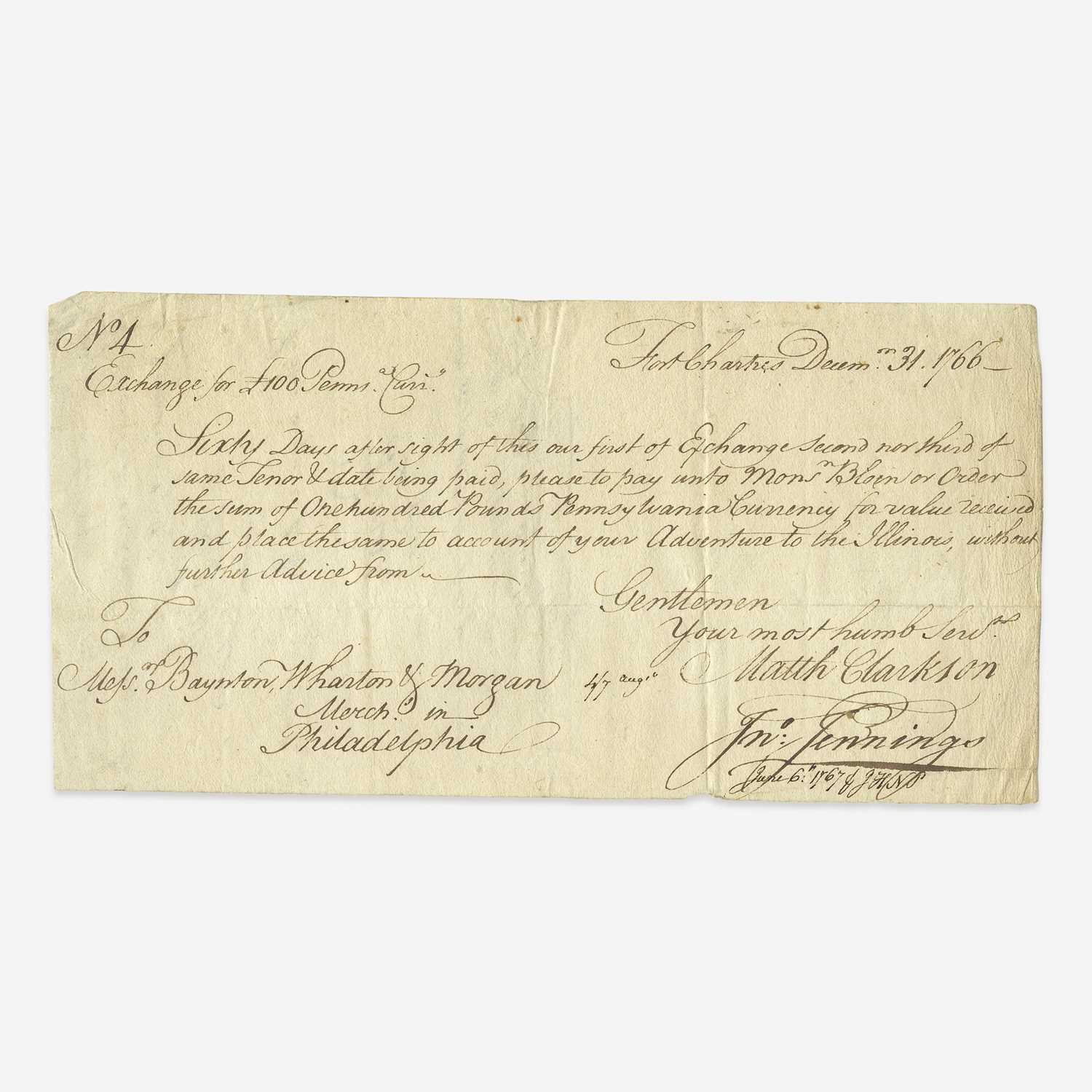
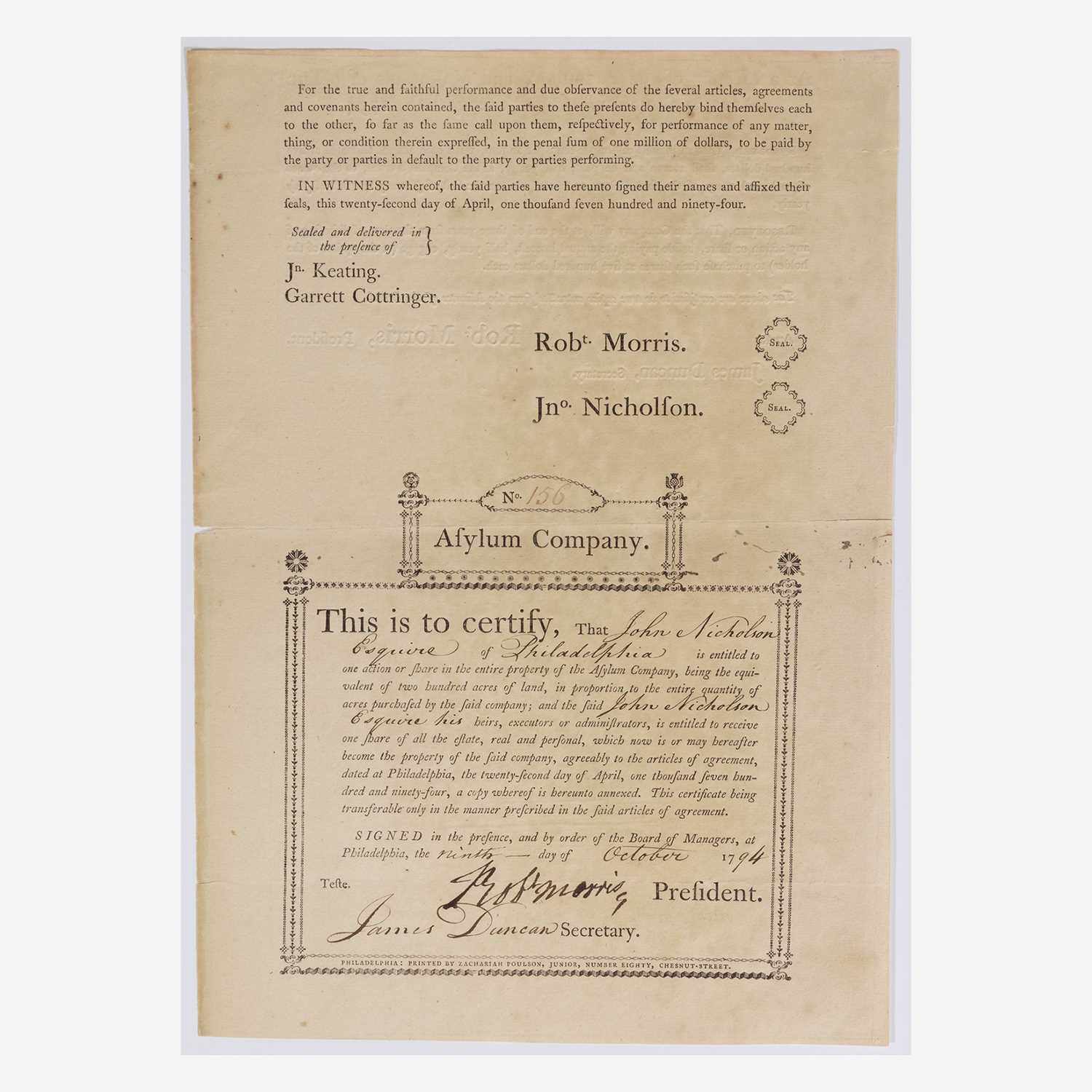

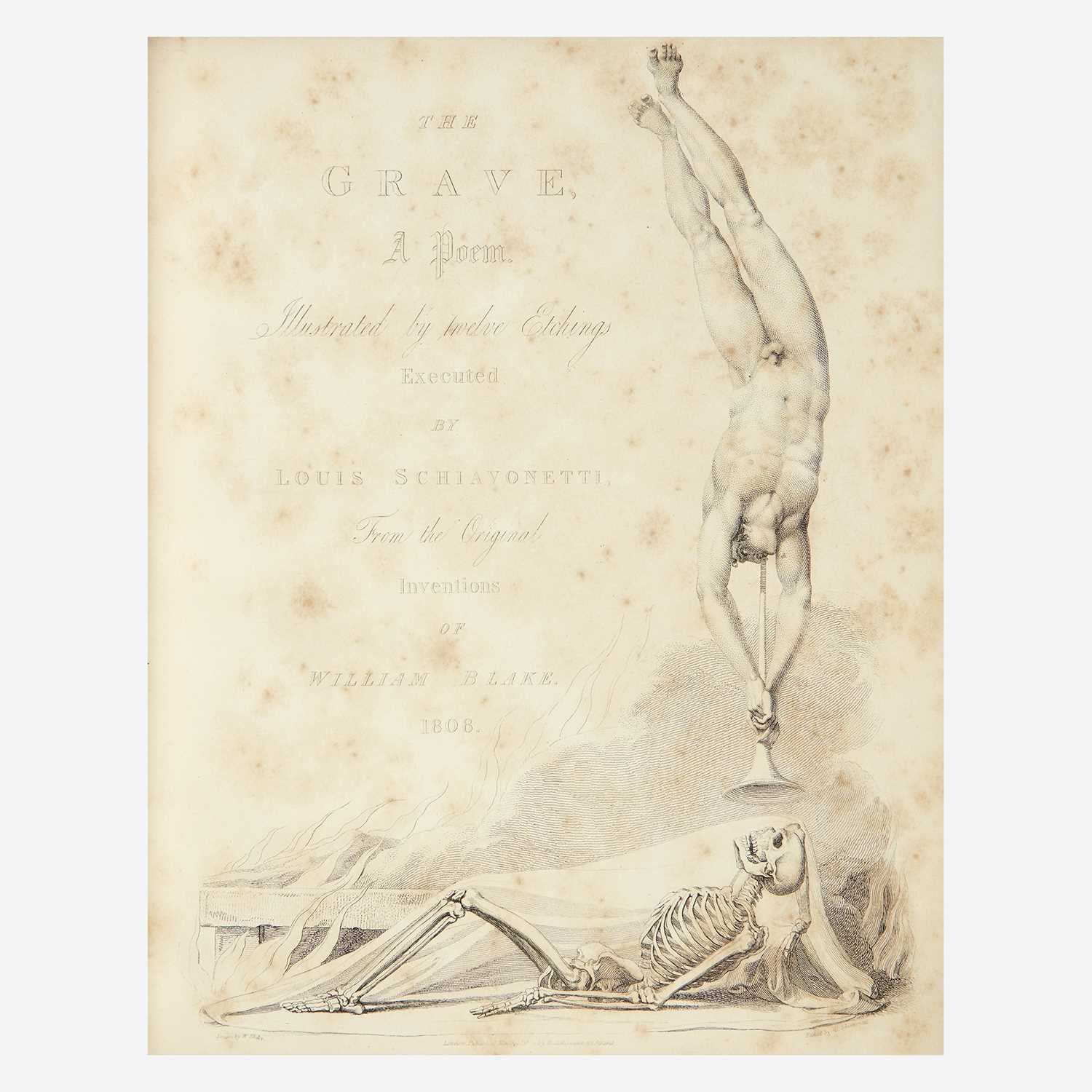

Testen Sie LotSearch und seine Premium-Features 7 Tage - ohne Kosten!
Lassen Sie sich automatisch über neue Objekte in kommenden Auktionen benachrichtigen.
Suchauftrag anlegen